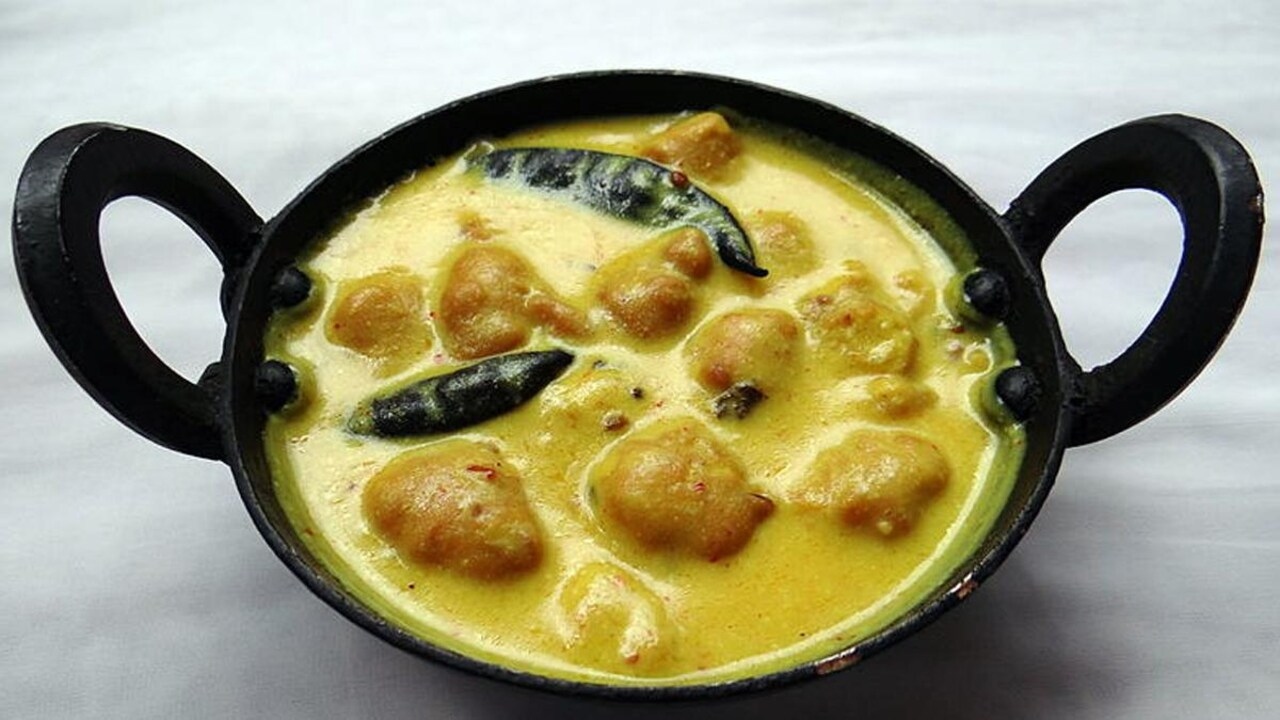As soon as the month of Sawan arrives, a wonderful combination of greenery, coolness, and spiritual energy is seen in the atmosphere. Shiva devotion has special significance in this holy month, and many traditions and rules are also followed regarding food and lifestyle. One of these traditions is that eating kadhi is avoided during Sawan. But have you ever wondered why this is said? Is it only a religious belief, or is there any scientific or Ayurvedic logic hidden behind it?
Let us know in detail why kadhi should not be eaten in Sawan, and what Ayurveda says about it. We will understand this topic in depth so that you can also take care in your daily routine and take full advantage of this holy season in terms of health.
What is Kadhi, and what is added to it?
Kadhi is a favorite part of Indian food which is made from a mixture of curd and gram flour. It is cooked on low flame and often pakodas or green chillies are added to it. Its taste is sour-spicy and it is considered to cool the stomach. But this coolness can prove to be harmful for our health during the monsoon season.
Sawan and the change of weather
The rainy season is at its peak during Sawan. There is moisture in the atmosphere, very little sun rays are available and the digestive system naturally becomes weak. According to Ayurveda, the Vata and Kapha doshas increase in the body during the rainy season, which weakens the digestive power. At such a time, sour, cold and heavy food can harm the body.
Effect of Kadhi from an Ayurvedic point of view
According to Ayurveda, the curd used in Kadhi is acidic in the rainy season, which further increases the Kapha in the body. Apart from this, gram flour is a heavy and slow-digesting grain, which puts additional pressure on the already weak digestive system. It can cause problems like gas, indigestion, bloating, and acidity.
Eating Kadhi can increase the water element and Kapha dosha in the body, which can cause problems like cold, fever, shortness of breath and sore throat, especially for those who already suffer from allergies or sinus.
Sourness of Kadhi and Monsoon Problems
Consuming sour foods is especially prohibited in Sawan. The reason for this is that the sour taste (amla ras) imbalances the pitta and kapha in the body. This can increase problems like skin disorders, allergies, fatigue and even fungal infections, which are already common in monsoon. In such a situation, sour Kadhi further affects the digestive power.
Religious and traditional reasons
Sawan is the month of Shiva Bhakti. This month is considered to be a symbol of restraint, fasting, satvik diet and simple lifestyle. In such a situation, the tradition of avoiding fried, spicy and sour dishes like Kadhi is also linked to this principle, so that both the body and mind can be kept pure.
Should everyone avoid Kadhi?
Although some people who have good digestion can eat Kadhi in small quantities and with fresh, mild spices, but it is wise for those who have allergies, acidity, thyroid, sinus, asthma or digestive problems to stay away from Kadhi in Sawan. Also, this season demands a little extra caution for children and the elderly.
What can be the alternatives?
If you want to eat light food, then dal water, moong ki dal, buttermilk (without salt), green vegetable soup, plain khichdi, and vegetables like gourd are better options. These are not only easily digested, but also give enough energy and nutrition to the body.
Our WhatsApp Link
Gold Ka Bhav 13 July 2025: Phir Se Hua Price Mein Uchaal, Check Karein Abhi
Horoscope Today 13 July 2025: Aries, Leo, Capricorn to Gain from Guru Aditya Yoga
Disclaimer:
The videos, articles and news published/broadcasted on topics like health, beauty care, Ayurveda, yoga, religion, astrology, Vastu, history, Puranas etc. in Webdunia are only for your information keeping in mind the public interest. We do not confirm the veracity of this. Before using any, please consult an expert.
Sawan Mein Kadhi,Sawan Mein Kadhi,Sawan Mein Kadhi,Sawan Mein Kadhi
